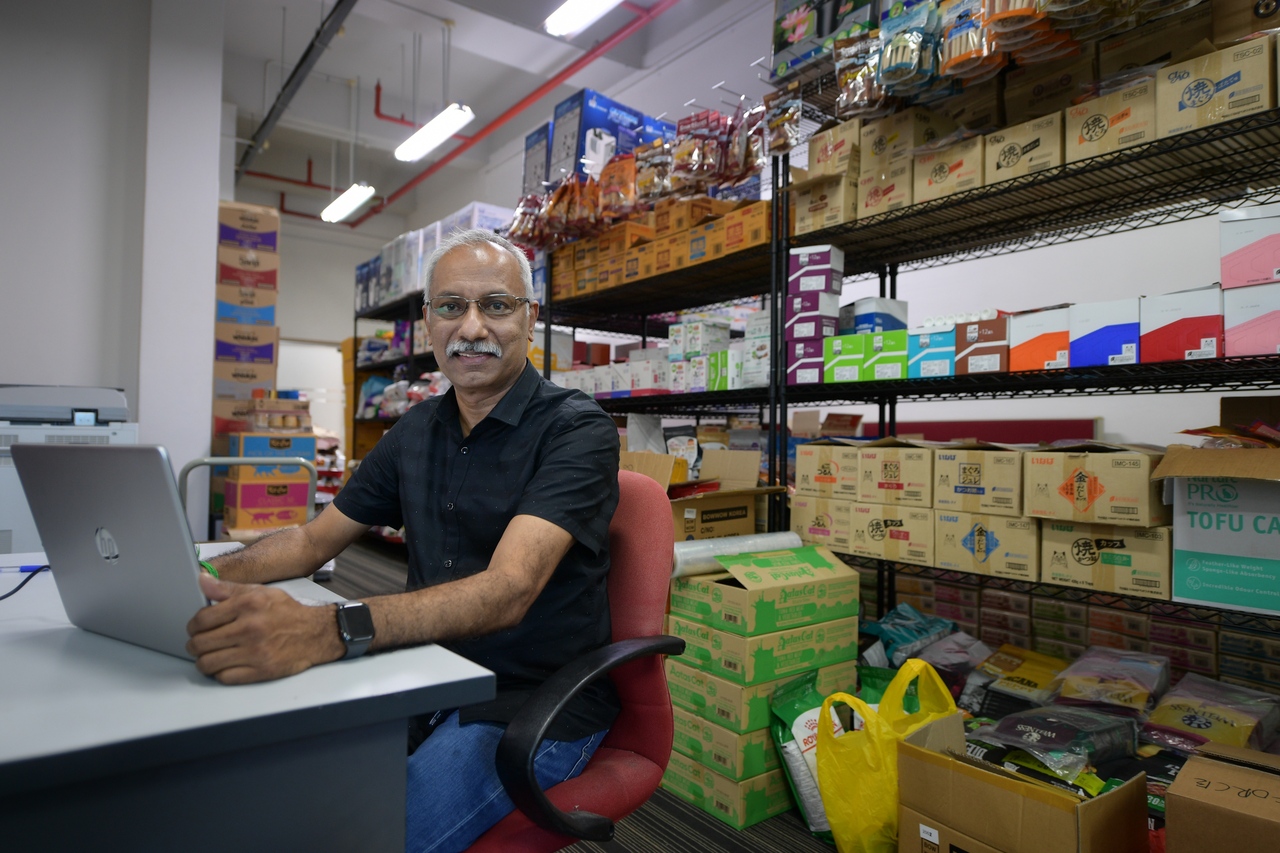Budget 2022: Retraining helps him make mid-career switch from events management to digital marketing
Sign up now: Get ST's newsletters delivered to your inbox

Mr Manokaran R. Muthuveerappan left his events management job in August 2020 and joined IT consulting firm Unisoft Infotech as a digital marketing manager the next month.
ST PHOTO: NG SOR LUAN
Follow topic:
SINGAPORE - When most events had to be cancelled after Covid-19 hit in 2020, Mr Manokaran R. Muthuveerappan, then an events manager, was worried about his livelihood.
The 60-year-old, who was in the events industry for about eight years, told The Straits Times on Friday (Feb 18): "I thought it was going to be over in a while, but a few months passed and I realised Covid-19 was not going anywhere. I was worried whether my job would still be there in the next few years."
Taking a leap of faith, he left his events management job in August 2020 and joined IT consulting firm Unisoft Infotech as a digital marketing manager the next month.
"This was something alien to me," he said.
Unisoft recommended him for Workforce Singapore's Career Conversion Programme for digital advertising professionals, where he picked up skills in data analytics, Web development and user interface design.
Mr Manokaran was hired and then trained on the job.
In other cases, mid-career workers may be on an attach-and-train arrangement if the company cannot commit to hiring more staff. Under it, employers are strongly encouraged to offer employment to eligible trainees who have met satisfactory training and performance requirements.
Finance Minister Lawrence Wong said in his Budget speech on Friday that company attachments for mid-career workers will be a "permanent feature of our training and placement ecosystem", such as through the SGUnited Mid-Career Pathways Programme. The programme allows workers to upskill while receiving a training allowance.
Before his new job, Mr Manokaran was not on any social media or e-commerce platforms.
Now, he makes Facebook and Instagram posts, puts up product listings on Lazada and Shopee, and manages the website of PetMall, which is owned by Unisoft's subsidiary Uniforce.
"To anybody my age, I'd say if you need to take a plunge to start a new job, do it. Learning new things is only a matter of time," he said.
Mr Wong also announced in his Budget speech that about $100 million will be set aside to support the National Trades Union Congress to scale up Company Training Committees (CTCs), where unions and employers develop plans to upskill workers.
Part of the funds will go into a new grant, to be administered by NTUC, to support companies that have set up CTCs to implement their transformation plans.
Home-grown cleaning firm Speco is among more than 800 companies where CTCs have been formed by NTUC.
Speco's chief executive and founder Benjamin Chua, 34, said since forming its CTC in 2017 with the Building Construction and Timber Industries Employees' Union, the firm has been planning courses to upskill workers in infection control, crisis management as well as to improve their critical thinking skills.

<p>ST20220218_202268962664 : Gin Tay / budilreskill18-ol/19 / Liew Bi Xuan Isabelle</p> <p>Profile of Benjamin Chua, the Founder and CEO of Speco at Robertson Quay on Feb 18, 2022.</p>
PHOTO: ST
"It all came into play when Covid-19 hit. We need to make quick decisions when dealing with a crisis, and this is the level of thinking we want to impart to our workers, so they are able to move into higher-level jobs and more critical forms of thinking," he said.
Speco also redesigned jobs by adopting cleaning technologies such as electrostatic machines and cold fogging to reach higher areas and improve productivity.
Workers are also trained to operate the SpecoBot, a robot that conducts a first round of disinfection at a client's premises before workers enter it.

